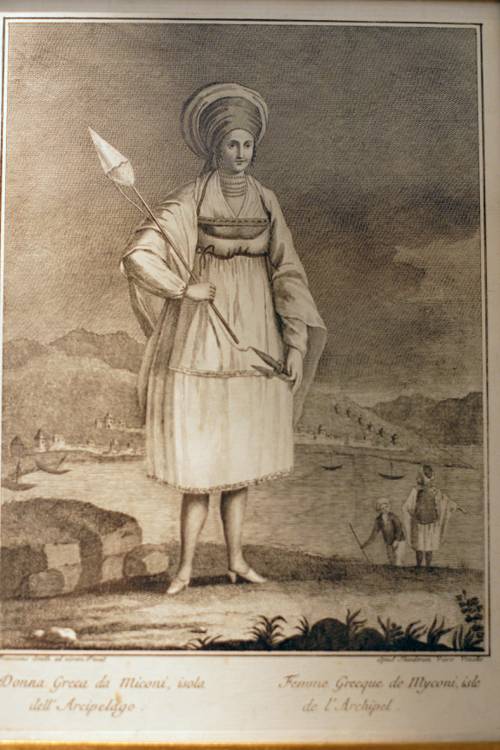
FAQ About The Impact of Maritime Folklore on Modern Storytelling

What is maritime folklore?
Maritime folklore refers to the traditional stories, legends, myths, and fables that originate from coastal and seafaring communities. These tales often involve the sea, ships, sailors, and mythical creatures such as mermaids and sea monsters. They are a reflection of the cultural heritage of maritime societies and serve as a means of passing down knowledge, beliefs, and values related to the ocean and seafaring.

How does maritime folklore influence modern storytelling?
Maritime folklore influences modern storytelling by providing rich narratives that are adapted and incorporated into literature, film, and other media. These stories often serve as inspiration for themes involving adventure, exploration, heroism, and mystery. Elements from maritime folklore, such as mythical creatures, legendary voyages, and nautical superstitions, are frequently used to create engaging and culturally resonant narratives.

What are some examples of maritime folklore in modern literature?
Modern literature is replete with elements of maritime folklore. Herman Melville's "Moby Dick" draws heavily on sea myths and sailor lore. Contemporary works like Neil Gaiman's "Smoke and Mirrors" and China Miéville's "The Scar" incorporate nautical legends. These works use maritime folklore to enhance storytelling by adding depth and intrigue through the mystical and the unknown.

Are there any films that incorporate maritime folklore?
Yes, many films incorporate maritime folklore. For instance, "Pirates of the Caribbean" uses legends of ghost ships and sea monsters, while "The Lighthouse" explores sailor superstitions and psychological folklore of isolation at sea. These films use maritime themes to create visually captivating and enigmatic narratives.

Why is maritime folklore still relevant in today's storytelling?
Maritime folklore remains relevant today because it offers timeless themes of adventure, danger, discovery, and the human relationship with the unknown. These themes resonate universally, allowing modern stories to explore human emotions and societal issues through the lens of maritime adventure. The mysterious nature of the sea continues to captivate audiences, making these tales adaptable to various media.

What cultural narratives are reflected in maritime folklore?
Maritime folklore reflects cultural narratives that involve the struggles and triumphs of human interaction with the sea. These include themes of bravery, cautionary tales of hubris and the supernatural, and the community bonds among seafarers. Diverse cultures have their versions of sea-related myths, highlighting differences and similarities in cultural perceptions of the ocean across the world.

How do mythical sea creatures from folklore appear in modern stories?
Mythical sea creatures such as mermaids, krakens, and sirens often appear in modern stories as symbols or literal characters. They are used to explore themes of enchantment, danger, or the unknown. In movies like "The Little Mermaid" and "Pirates of the Caribbean," these creatures add a fantastical element that captures the audience’s imagination.

What role do sailors' superstitions play in maritime folklore?
Sailors' superstitions, such as the belief in lucky charms or omens like albatrosses, play a crucial role in maritime folklore by illustrating the anxiety and fear of the unpredictable sea. These superstitions often serve as plot devices in modern storytelling, adding depth and authenticity to characters and scenarios depicted in sea-related narratives.

Can maritime folklore be found in music and art?
Yes, maritime folklore can be found in various forms of music and art. Sea shanties, for example, are traditional maritime songs that have influenced modern music genres. Visual art often includes depictions of mythical sea scenes or figures which draw inspiration from maritime legends, capturing the awe and mystery of the ocean.

Is maritime folklore present in video games?
Maritime folklore is present in video games through immersive worlds that feature seafaring adventures and mythological elements. Games like "Assassin's Creed IV: Black Flag" and "Sea of Thieves" incorporate pirate lore and mythical sea creatures, offering players an interactive way to experience and engage with these timeless stories.

How has maritime folklore shaped cultural identity?
Maritime folklore has significantly shaped cultural identity, particularly in coastal and island communities, by preserving and communicating shared experiences and values related to the sea. It serves as a historical record and cultural touchstone, helping these societies maintain a connection to their ancestral roots and maritime heritage.

What misunderstandings about maritime folklore exist?
A common misunderstanding about maritime folklore is that it is solely about fantastical tales and myths. In reality, it encompasses a broad spectrum of narratives including moral lessons, real historical events, and cultural practices connected to the sea. It is a complex interweave of fictional and factual accounts that reflect the lives and beliefs of maritime peoples.

How do modern storytellers adapt maritime folklore for contemporary audiences?
Modern storytellers adapt maritime folklore by updating its themes to reflect current societal concerns while preserving its core elements of mystery and adventure. This can involve integrating modern issues such as environmental impact, globalization, or personal identity, providing new layers of meaning and relevance to traditional stories.

What is the significance of shipwreck narratives in maritime folklore?
Shipwreck narratives are significant in maritime folklore as they symbolize the perilous nature of the sea and human vulnerability. They often involve cautionary elements and moral lessons about hubris or fate. In modern storytelling, shipwreck tales are used to explore themes of survival, isolation, and resilience.

Are there any modern books that retell maritime folklore?
Modern books such as "The Mermaid and Mrs. Hancock" by Imogen Hermes Gowar and "The Starless Sea" by Erin Morgenstern retell maritime folklore, weaving together historical and mythical aspects to create new interpretations of ancient stories. These works explore human desire, mystery, and discovery, while paying homage to traditional maritime legends.

How does maritime folklore differ across cultures?
Maritime folklore differs across cultures based on historical, geographical, and societal contexts. For instance, Nordic maritime folklore often involves Vikings and sea spirits, while Polynesian tales emphasize navigation and ocean stewardship. These differences highlight diverse perspectives on the sea, yet common themes of human connection and struggle against nature are universal.

In what ways has maritime folklore evolved over time?
Maritime folklore has evolved from primarily oral traditions to written literature and multimedia forms, reflecting technological and cultural changes. This evolution allows it to reach wider audiences and adapt to new narrative forms, while still maintaining its foundational elements. The core themes of human adventure and mystery remain central despite these transformations.

What modern myths have been inspired by maritime folklore?
Modern myths inspired by maritime folklore include stories of the Bermuda Triangle or tales of ghost ships like the "Flying Dutchman." These are contemporary extensions of ancient maritime mysteries, expanded upon by modern media to encompass current themes of intrigue, unexplained phenomena, and human fascination with the sea.

How do television series incorporate maritime folklore?
Television series incorporate maritime folklore by using sea legends as backdrops or central plots. For example, "Black Sails" combines pirate history with folklore, while "Siren" explores the myths of mermaids. These series use maritime elements to build complex stories that explore human nature and societal issues within a nautical setting.

What are the challenges of integrating maritime folklore into modern media?
Integrating maritime folklore into modern media can be challenging due to the need to balance authenticity with creative adaptation. Storytellers must navigate cultural sensitivities, preserve core elements, and resonate with contemporary audiences. This often requires a deep understanding of maritime history and myth to effectively bridge the past with the present.
